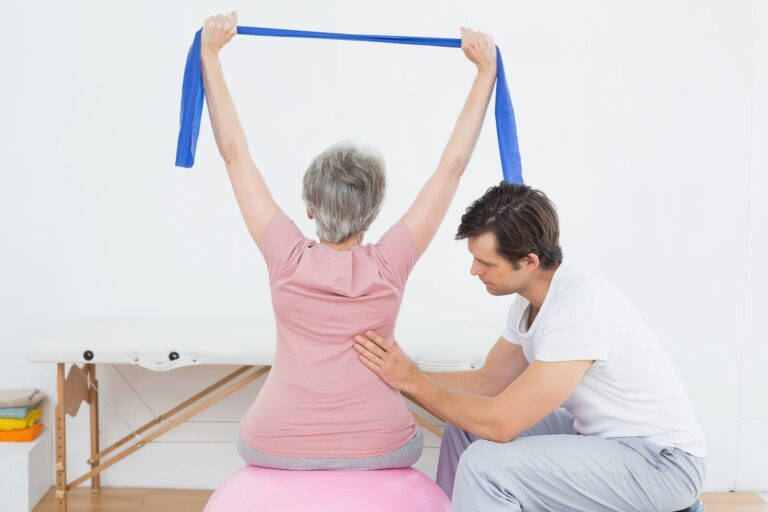Have you ever noticed that the older you get, the shorter you seem to get, too? As we enter our 50s and 60s, we actually do experience a “shrinking” phenomenon and can end up losing up to an inch of our overall height. What causes this? And is there anything we can do about it?
Proper Posture and its Effect on Seniors
It’s true that our spines begin to change as we age. The vertebrae and discs that act as cushions between the bones of our back start to break down and thin out over time. Also, the cartilage and connective tissues in our spines can start to lose thickness and elasticity. However scary this may sound, there are actually ways we can ensure we lose as little of our height as possible and keep the bones in our spine healthy. Maintaining proper posture throughout our lives is so important to keep our backs strong and straight.
Proper posture for seniors is even more important. Taking the proper steps to make sure you’re maintaining good posture can help you:
- Stay balanced and decrease chances for a fall. Falls are the number one cause of injury among seniors, leading often to broken bones and other injuries. When seniors are being more mindful of their posture, they have better balance and less risk of falling.
- Prevent osteoporosis. Because your back muscles and ligaments have to work overtime when you have poor posture, over time these overworked muscles can lead to degeneration in the spine and serious conditions like osteoporosis and osteoarthritis.
- Lower the risk of heart attack and stroke. Seniors often develop hypertension when their blood isn’t flowing properly throughout their bodies. This also puts them at greater risk for stroke, heart attack and conditions like obesity and diabetes.
- Lift spirits and decrease feelings of depression. Having proper posture improves your circulation, which better oxygenates your body and leads to a positive mood and perception. Studies have even shown that seniors who stand and sit upright have more energy and are more confident in life.
- Enhance cognitive functioning. Even though it’s not scientifically proven that proper posture can delay the onset of dementia, a properly aligned spine can aid in communication between neurotransmitters and the brain, allowing for better memory recall.
- Improve blood flow and help with digestive issues. Sitting up straight while you eat can aid in digestion, as your organs aren’t being compressed by slouching.
How to Correct Posture through Exercise
It’s important for seniors to work on improving their posture as soon as possible. First of all, avoid being sedentary for long periods of time. Simply getting up and moving around every so often allows your muscles to stretch out and stay limber.
Secondly, invest some time in learning about some exercises that can help improve your posture. Core exercises are perfect for this as they help keep you balanced, stable, and increase your overall body strength. Look for a senior yoga or Pilates class to help develop your core strength.
Also, talk to a trainer about what types of machines at your local gym can target your back extensors, side and pelvic muscles and neck flexors. At American Senior Communities, we offer our New Energy Wellness program that focuses on improving balance and posture, and our Health Promotion Coordinator will design a customized workout regimen based on your needs.
You can also do some weight-bearing exercises at home, like walking or climbing stairs (if you’re currently stable on your feet) to help reduce any breakdown in your vertebrae.
For more information about American Senior Communities, please visit www.ASCSeniorCare.com.




